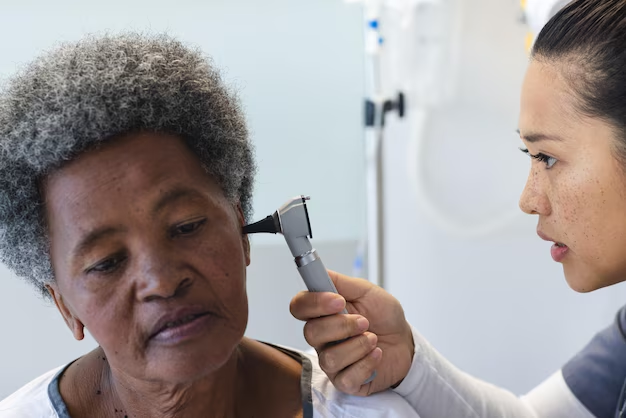Your Guide to Is Cataract Surgery Covered By Medicare
What You Get:
Free Guide
Free, helpful information about Medicare Insurance and related Is Cataract Surgery Covered By Medicare topics.
Helpful Information
Get clear and easy-to-understand details about Is Cataract Surgery Covered By Medicare topics and resources.
Personalized Offers
Answer a few optional questions to receive offers or information related to Medicare Insurance. The survey is optional and not required to access your free guide.
Is Cataract Surgery Part of Your Medicare Plan? Here's What You Need to Know
Cataracts may cloud more than just your vision; they can cloud your understanding of whether Medicare covers cataract surgery. As you or a loved one considers this common procedure, crucial to maintaining eyesight and quality of life, understanding the financial aspects is vital.
Medicare Coverage for Cataract Surgery
The good news for seniors dependent on Medicare is that Medicare Part B typically covers cataract surgery as it is considered a medically necessary procedure. This coverage is extended regardless of whether the surgery involves traditional methods or advanced options like laser-assisted techniques. Here’s a breakdown:
- Surgeon and facility fees: Medicare Part B covers these, usually up to 80% of the approved amount, after the deductible.
- Prescriptions: Post-operative eye drops and medications may also be covered under the Medicare Prescription Drug Plan or Medicare Advantage Plan with Part D coverage.
- Eyewear: Post-surgery, Medicare covers one pair of corrective eyeglasses or a set of contact lenses.
However, it’s key to note that not all costs are fully handled by Medicare. Out-of-pocket costs may arise, particularly if you opt for advanced multifocal lenses or laser surgery not deemed medically necessary.
Navigating Additional Costs
While Medicare provides substantial assistance, additional fees can be a burden. This is where understanding other financial assistance opportunities can come into play. For many, government aid programs and financial relief options can be crucial allies. Here’s what to consider:
- Supplemental Medigap coverage: This can help cover the remaining 20% of surgery costs not paid by Medicare Part B.
- Medicare Advantage Plans: These plans sometimes offer broader coverage options, with added benefits like dental, vision, or wellness programs.
- State assistance programs: Depending on your location, specialized programs may aid with medical expenses not covered by traditional Medicare.
In addition to government aid, considering broader financial solutions can ease the burden:
Debt Relief and Educational Grants
Planning for healthcare costs is critical, especially when dealing with unexpected medical expenses. Here are notable avenues to consider:
- Credit Counseling Services: For those struggling with medical debt, professional counseling services can offer tailored solutions to streamline payments and improve financial wellness.
- Educational Grants: While not directly related to medical expenses, lifelong learning opportunities may offer courses in financial literacy, empowering you to manage every aspect of your current and future bills better. As you invest in learning, you assemble a toolkit to navigate complex healthcare systems and costs effectively.
Empower yourself with information and apply these financial tools smartly. This proactive approach ensures you remain on top of your health without compromising financial stability.
Financial Assistance and Credit Solutions Guide
📅 Medigap Policies: Manage the 20% not covered by Medicare with supplementary insurance.
👓 Medicare Advantage Plans: Explore options with additional benefits, including vision.
💰 State Health Assistance Programs: Check if state-level programs can assist with uncovered expenses.
📈 Credit Counseling Services: Seek professional advice to help manage any incurred medical debt.
🎓 Financial Literacy Courses: Consider grants for courses that enhance financial management skills.
Navigating Medicare can be complex, but by tapping into these resources, you'll find clarity not only in vision but in managing your overall well-being and financial health.
What You Get:
Free Medicare Insurance Guide
Free, helpful information about Is Cataract Surgery Covered By Medicare and related resources.

Helpful Information
Get clear, easy-to-understand details about Is Cataract Surgery Covered By Medicare topics.

Optional Personalized Offers
Answer a few optional questions to see offers or information related to Medicare Insurance. Participation is not required to get your free guide.


Discover More
- Am I Elgible For Medicare
- Am I Enrolled In Medicare
- Am I Qualified For Medicare
- Are Adult Diapers Covered By Medicare
- Are Chemotherapy Drugs Covered By Medicare Part d
- Are Colonoscopies Covered By Medicare
- Are Covid Tests Covered By Medicare
- Are Cpap Machines Covered By Medicare
- Are Cpap Supplies Covered By Medicare
- Are Dental Implants Covered By Medicare
